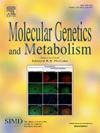Maternal metabolic conditions identified by newborn screening
IF 3.5
2区 生物学
Q2 ENDOCRINOLOGY & METABOLISM
引用次数: 0
Abstract
Newborn screening is one of the most successful public health programs that has improved outcomes for children with conditions that can cause long-term disability or even death if not treated quickly. With the introduction of expanded newborn screening (NBS) and the use of tandem mass spectrometry, the number of core and secondary conditions recommended on the United States national NBS guideline called the Recommended Uniform Screening Panel (RUSP), rapidly grew to help screen for inborn errors of metabolism (IEM) [1]. A few years after this initiation and as more newborns were screened, there were several case reports of mothers who were diagnosed with an IEM condition or vitamin deficiency that was causing their child's abnormal newborn screening results. We conducted a PubMed literature search and identified reports of 14 maternal conditions identified via NBS and provide a comprehensive review of their findings. We define a maternal condition as biochemical or genetic findings that confirm the mother has the condition and the child is unaffected or an obligate carrier. This review could be useful for countries that plan to initiate expanded newborn screening in the future as well as for metabolic providers, who are involved in the confirmatory testing process for newborn screening referrals.
新生儿筛查确定的母体代谢状况
新生儿筛查是最成功的公共卫生项目之一,它改善了患有可能导致长期残疾甚至死亡的疾病的儿童的预后,如果不及时治疗。随着扩大新生儿筛查(NBS)的引入和串联质谱法的使用,美国国家NBS指南中推荐的核心和次要条件的数量迅速增加,称为推荐统一筛查小组(RUSP),以帮助筛查先天性代谢错误(IEM)[1]。在这一开始的几年后,随着越来越多的新生儿接受筛查,有几例报告称,母亲被诊断出患有IEM或维生素缺乏症,导致她们的孩子出现异常的新生儿筛查结果。我们进行了PubMed文献检索,确定了通过NBS确定的14例产妇疾病的报告,并对其发现进行了全面的回顾。我们将母体条件定义为生化或遗传发现,证实母亲有条件,孩子是不受影响的或专性载体。这一综述对计划在未来开展扩大新生儿筛查的国家以及参与新生儿筛查转诊确认性检测过程的代谢提供者可能有用。
本文章由计算机程序翻译,如有差异,请以英文原文为准。
求助全文
约1分钟内获得全文
求助全文
来源期刊

Molecular genetics and metabolism
生物-生化与分子生物学
CiteScore
5.90
自引率
7.90%
发文量
621
审稿时长
34 days
期刊介绍:
Molecular Genetics and Metabolism contributes to the understanding of the metabolic and molecular basis of disease. This peer reviewed journal publishes articles describing investigations that use the tools of biochemical genetics and molecular genetics for studies of normal and disease states in humans and animal models.
 求助内容:
求助内容: 应助结果提醒方式:
应助结果提醒方式:


